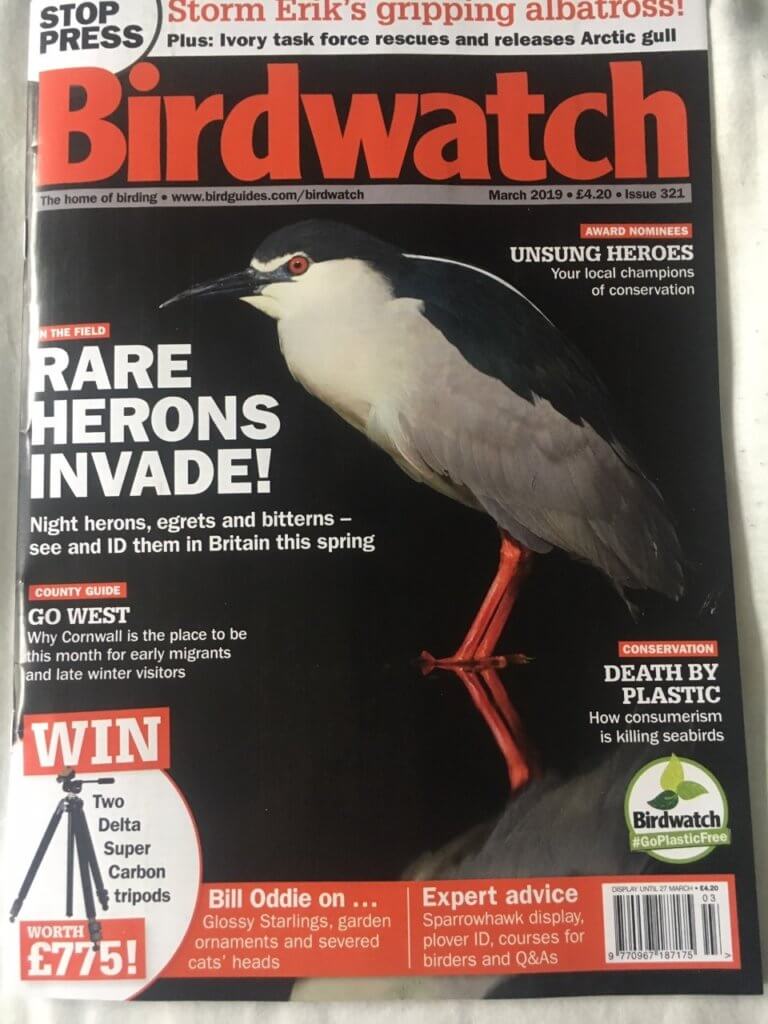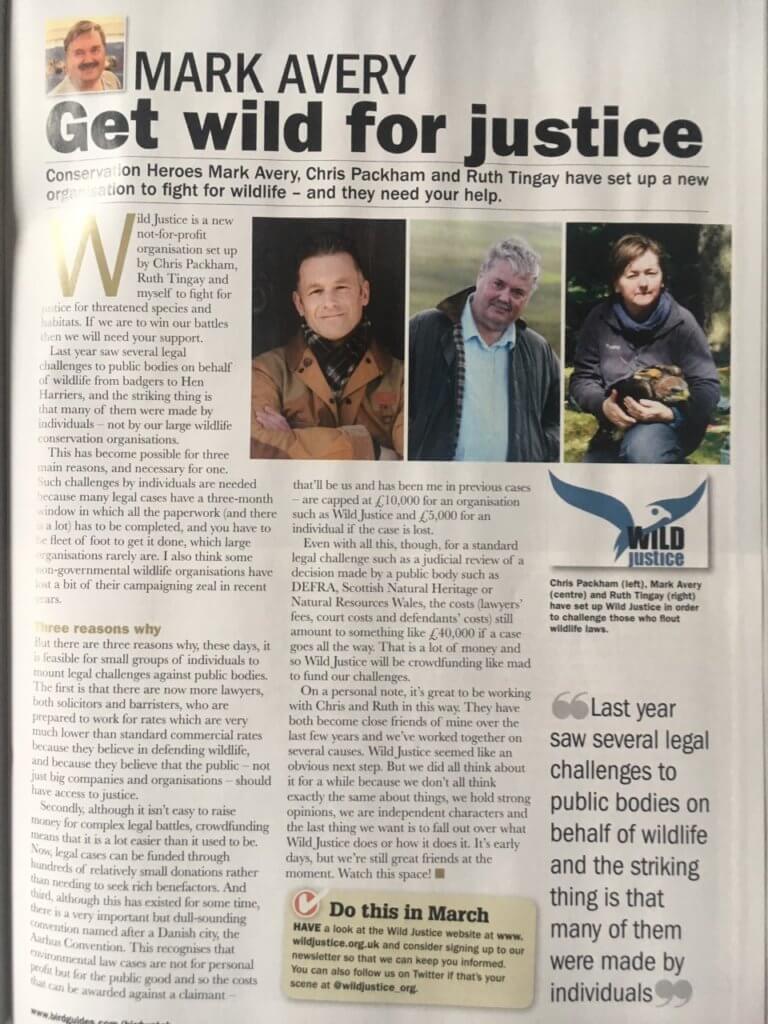
The March Birdwatch looks very fresh and clean and comes in its new potato starch wrapper – but what about the articles?
Dominic Mitchell mentions the recent acceptance of a bird close to the heart of many Northants birders – the Falcated Duck of 1986-87 and 1987-88. This was the first British record. Although the bird made the gross error of being seen in Norfolk before moving to Pitsford Reservoir (in both winters!) it still feels like a Northants event. And no, I didn’t see it because I didn’t go for it (I was washing my hair those months). Dominic makes the case for another reassessment of another species, a raptor, but you can read the convincing case he makes in the magazine.
Have you ever seen a flock of 5 million birds? Of any species? Nor me. My largest flock of birds was a Starling murmuration on the Somerset Levels many years ago that I was told was a million birds. On pages 6-7 there is an amazing image of hundreds of closely-packed Brambling which were part of that 5-million-strong flock. Wow! I would rather see that sight than a Falcated Duck myself.
There’s a long and thoughtful review of Wilding by Josh Jones (see my review here – and Wilding was this blog’s Book of the Year for 2018).

There are many other good words and good images in this issue. I’ll be carrying it around the country on my journeys this month to make sure I get to read almost all of it.
And my column was predictably about the launch of Wild Justice.
[registration_form]
“Invade”
Seriously? The cover setter needs a lesson on negative language. Then again, as this is Brexit month, I suppose it is only fitting that regressive language which creates a false impression of Glorious British Isolation under threat from the evil other.
Rare Herons “Arrive” would be a much more positive, energising, and engaging than “Invade”.
I sincerely doubt that any reader or potential reader of Birdwatch magazine will have felt any negative feeling towards the herons, egrets and bitterns in question on account of this caption. I think you are looking to find problems where there are none.
I agree with Random22 – the language one uses is very significant and does foster disrespect for species we deem to be in our way, on our territory.
In general I agree that use of language is important. In this case I doubt that a single person’s attitudes to the various ardeids that occasionally show up here will have been made one iota more negative by the caption. I imagine that readers and potential readers of Birdwatch will be virtually unanimous in welcoming the prospect of seeing a Night Heron or a Little Bittern somewhere in the UK this Spring and I don’t think the caption will have done anything other than whet their appetites at the prospect.